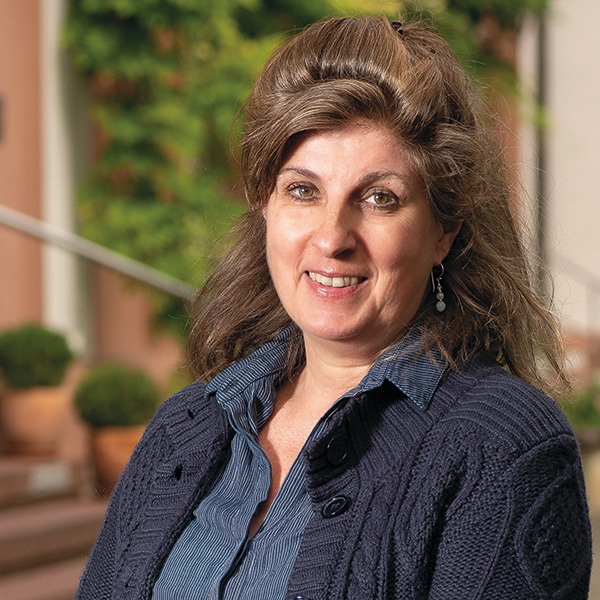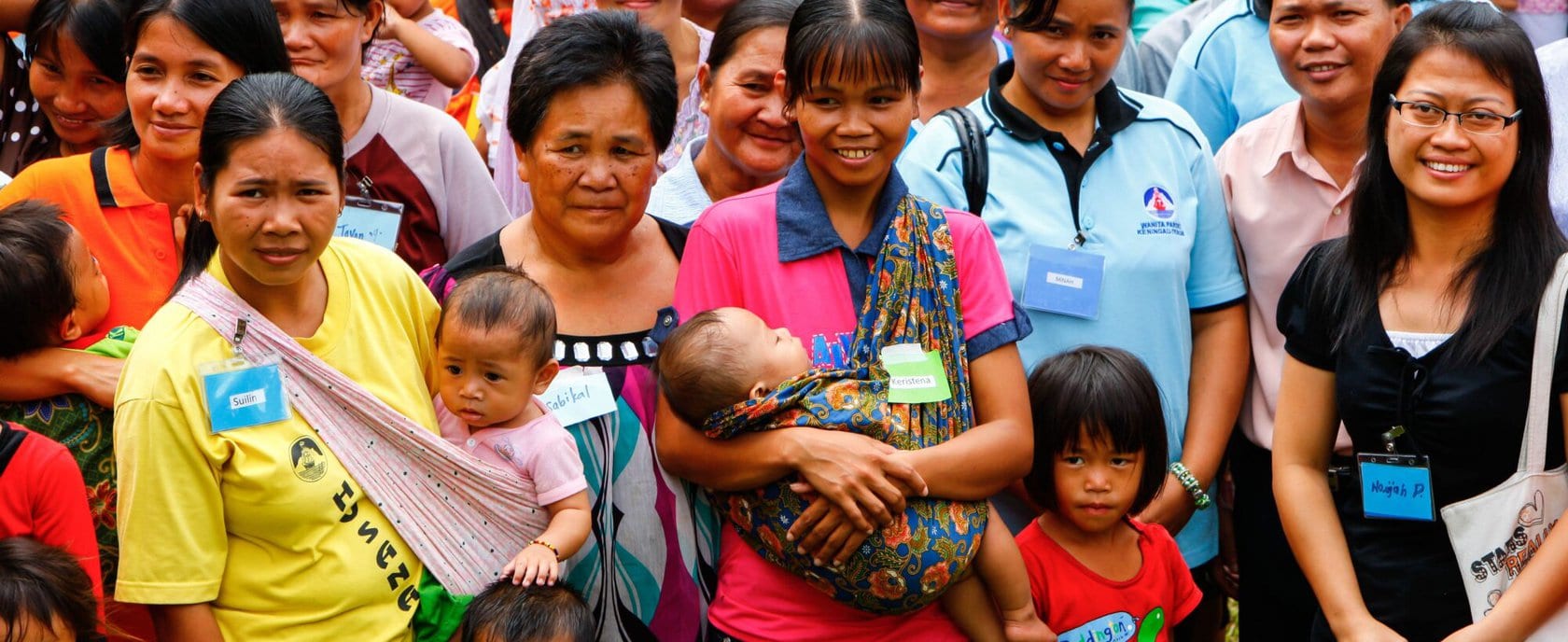
Jacqueline Brunner
Team leader church partnerships
Tel. 061 260 23 37
► E-mail

Project Number: 225.1008
Sexualized violence against women is widespread in Indonesia and Malaysia. Due to a lack of income and future prospects, hundreds of thousands of Indonesians migrate to neighboring countries and often experience violence and exploitation in this vulnerable situation, for example in Hong Kong. This project is committed to women's rights and overcoming gender-based violence by providing those affected with protection in women's shelters as well as psychological, legal and economic support. Key players in the administration, religious communities and teachers are trained on the topic and appropriate contact points are set up. The supra-regional platform for safe and fair migration serves to facilitate exchange and coordination between our civil society partner organizations, links them with authorities and organizes awareness-raising campaigns.
Mission 21 works with six partner organizations in Indonesia, Malaysia and Hong Kong and promotes projects to combat sexual and gender-based violence.
Women are particularly vulnerable in a generally patriarchal context, as in many Asian countries, as they are also subordinate to their husbands under civil law. The husband is considered the head of the family with far-reaching powers of control and domination. Indonesian and Malaysian law makes the spouse who leaves the parental home first guilty and thus discriminates against women who move away with their children because they have experienced domestic violence. Traditional cultural norms, characterized by poverty, still lead to the marriage of underage girls in Indonesia and Malaysia, which can be seen as a structural form of violence. In Indonesia, around 1.2 million women are under the age of 18 when they get married each year, with marriages often being arranged by the heads of the family and the will of the young women concerned not being respected.
In order to improve their economic situation, many Indonesians seek employment abroad, for example in Malaysia, Hong Kong, Taiwan, Korea, Singapore or the Middle East. Others are even forced by their families to earn money as migrant workers. Quite a few fall victim to human trafficking. To prevent this and reduce the pressure to migrate, Mission 21 supports prevention measures in Indonesia. Over nine million Indonesians work abroad. 66 percent of these are women; very often they are employed as domestic workers and caregivers.
In the Hong Kong project region, around 350,000 foreign domestic workers mostly work under very poor conditions, with more than 40 percent of them coming from Indonesia. The lack of education worsens the situation of migrant workers in particular. Few know their rights and are able to seek help or defend themselves in cases of abuse, sexual exploitation or unhealthy conditions in the workplace. Data from Hong Kong indicates an increase in sexual violence by employers in 2023
Malaysia has become one of the most popular destination countries for unskilled migrant workers. A large number of them enter the country without papers. The province of Sabah, where Mission 21 is active, has the highest proportion of stateless people in the whole of Malaysia, which leads to complex problems. Mission 21 supports immigrants affected by violence in Sabah, especially children of undocumented migrant workers who are affected by violence. As part of Mission 21's education project (project no. 225.1004), children of irregular immigrants in Malaysia are also supported in their school education. Mission 21 also carries out prevention and awareness-raising work at community level.
The primary target group are women who are victims of disenfranchisement, exploitation and violence in their own families or as migrant workers in foreign households or along the migration chain, or who are exposed to this risk. The children of irregular migrant workers in Sabah, Malaysia, are also part of the target group. Men are included in prevention work and campaigns, because gender justice can only be achieved if women and men work together towards it.
Direct project participants: 5,515
Indirect project participants: 17,413
In the area of direct support for victims of sexualized and gender-based violence, including human trafficking, our partner organizations assisted a total of 240 (predominantly female) people in 2023. The support provided included psychological, medical, legal and economic support. The increase in the number of victims supported compared to previous years shows that awareness of gender-based violence is growing and more people are making use of support services.
Through reintegration and income-generating measures, some of those affected were able to continue their studies or start their own business. For offenders, the GKP newly offered rehabilitation courses at its women's shelter "Pasundan Durebang" in Bandung to promote long-term behavior change. The shelter "House of Hope" of the GMIT in Kupang supported the families of 129 migrant workers who died abroad, a sadly high number of deaths.
In its service area, GMIT established support and prevention teams for victims of sexualized violence and human trafficking in ten parishes. In West Java, the GMIT was able to work with the Muslim civil society organization Sapa Institute to establish contact with the Islamic Union of Indonesia, which includes fundamentalist groups. This enabled it to expand its education and awareness-raising activities on the issue of gender-based violence.
In the area of prevention, structural work was carried out to change gender roles and relationships in favor of less violent coexistence. 2,212 people (approximately one third men, two thirds women) took part in awareness-raising measures. Capacity building initiatives, including training, courses and workshops, were attended by 809 people, mostly women, who were trained as mediators and counselors in their communities. 1,027 people were reached directly through advocacy activities in the political and church landscape.
Today, several partner organizations implement a code of conduct for the prevention of sexual exploitation, abuse and harassment (PSEAH) and promote gender equality in leadership positions through measures - with success: three of the project's five partner churches are currently led by women, including the GKEwhich covers an enormous area (almost all of Kalimantan, the Indonesian part of Borneo). Indonesian migrant workers in Hong Kong have been Christian Action educated about gender equity and empowered to better exercise their rights.
The new law on the criminalization of sexual violence in Indonesia, which was passed in 2022, was implemented thanks in part to the tireless lobbying work of our partners. GKP, PERUATI and PGI and their intensive interfaith networking work. In addition, a bill was introduced in West Java that provides for the creation of integrated services for women, children and migrant workers.
In Sabah, Malaysia, 746 children of illegalized Indonesian migrant workers, who are excluded from public schools due to their parents' lack of residency rights, attended classes at the five community learning centers of the BCCM. 18 girls and 20 boys completed their education at a Community Learning Center, which corresponds to the level of junior high school in Indonesia.

CHF 306'200
Mission 21
Protestant Mission Basel
PO Box 270
Missionsstrasse 21
4009 Basel, Switzerland
Tel.: +41 (0)61 260 21 20
info@mission-21.org
Donation account Switzerland:
IBAN: CH58 0900 0000 4072 6233 2
Tax exemption number:
CHE-105.706.527
Donation account Germany:
Savings Bank Lörrach-Rheinfelden
Swift BIC: SKLODE66
BLZ: 683 500 48
IBAN: DE39 6835 0048 0001 0323 33
Account No. : 1032333